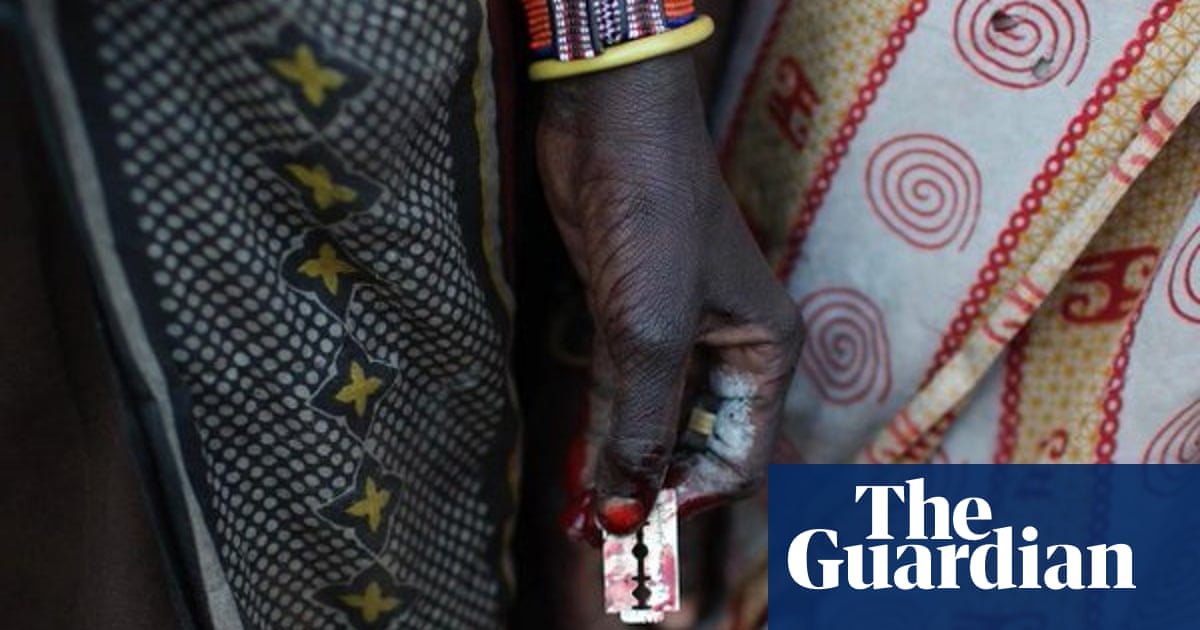
Attempts to eliminate female genital mutilation in Kenya have faced a setback following the death of a police officer during a confrontation with a group of young people.
Activists and local leaders condemned the murder, calling it a backward step in the fight to eradicate the practice in the country. Police in Elgeyo Marakwet county, in the Rift Valley region, had taken a group of girls who had been forced to undergo the illegal procedure to hospital when a mob of young men stormed a police station and stoned Cpl Mushote Boma to death.
According to the government-owned news agency in Kenya, a group of angry young people attacked a police post in an attempt to retrieve girls who had been saved by the police from being subjected to genital mutilation. They overpowered the officer on duty and brutally killed him by stoning him to death and setting his body on fire with a mattress.
According to Peter Mulinge, the county police commander, the six girls are currently recovering at a nearby hospital.
The practice of female genital mutilation, also known as “the cut”, is against the law in Kenya. However, it is still being performed in certain areas by women using primitive techniques and tools, often during school breaks. While there have been instances of activists being targeted by those performing FGM, attacks on law enforcement officials are uncommon.
Tony Mwebia, founder and executive director of the non-profit organization Men End FGM Foundation, expressed shock and disappointment at the fact that in this modern age, a police officer was killed while trying to rescue girls from undergoing the inhumane practice of female genital mutilation (FGM). He questions whether the men who committed this act were aware of the reasons behind their actions and if they understand the harm caused by perpetuating this harmful cultural tradition.
Mwebia, from an organization that has trained about 500 male advocates in counties where FGM is practiced, notes that men react negatively when shown videos of the procedure. They typically believe that FGM is done for their own benefit.
According to Mwebia, women are told that undergoing female genital cutting will make them more mature and prevent promiscuity. They are also warned that if they do not undergo the procedure, they will lose respect in their community. This is why they are willing to resort to violence, such as killing a police officer, to protect the practice.
In December 2016, Mwebia and his colleague were assaulted by a different group of men in Kuria. They were believed to have been recording a street parade of girls participating in the traditional cut.
A confidential local official expressed concerns that the assault on police officers will empower those who are committing the crime, as they will view the government as vulnerable and incapable of safeguarding its own.
“I am concerned about the act of killing a police officer in the name of FGM,” he expressed. “Although FGM is prohibited in Kenya, simply enforcing the law without proper education and awareness among the public will not be effective. It is crucial to have a thorough discussion with the local community if we want to prevent the spread of FGM in the region.”
The Nation newspaper reported that the police rescued approximately 70 girls. Viola Cherono, a human rights activist in the area, stated that there were potentially 500 girls gathering in the forest to undergo the ritual.
Every day, girls are being subjected to female genital mutilation in the Endo and Embobut areas. According to her, the residents of Embobut are extremely hostile and will retaliate against activists or law enforcement officials.
Bernadette Loloju, the CEO of the Anti-FGM Board in Kenya, stated that the murder was a “singular event that goes beyond human comprehension” and should not be used as a measure of progress in the fight against FGM.
According to Loloju, there has been a decrease in the prevalence of FGM in communities that used to strongly support the practice. This is due to girls speaking out and refusing to undergo the procedure. While women are typically the ones who perform FGM, efforts are also being made to educate and involve the male elders, who hold significant cultural influence. These elders are often surprised and disturbed when they witness videos demonstrating the process of FGM.
According to Mwebia, the fight against FGM can only be successful if we prioritize changing our tactics instead of wasting resources on conferences.
The country’s top leaders have shown a positive attitude towards this issue. The lack of support from men may be the main obstacle.
Source: theguardian.com


